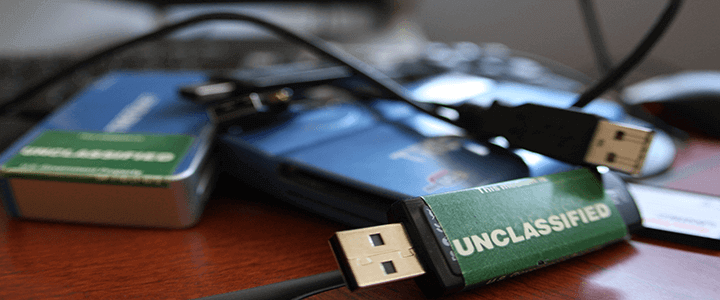News wire service Reuters scooped the Beltway with their story, published early Monday morning, that the Trump administration plans to create more American jobs by directing a “whole of government” program to promote the U.S. defense industry abroad. Under the plan, security assistance personnel at overseas embassies and consulates would become, as Reuters described it, “essentially… a sales force for defense contractors.”
The president will receive criticism from the usual suspects over the proposal to turn foreign service personnel and military foreign area officers into cheerleaders for major defense contractors. The real good news for defense contractors is the plan to loosen the International Trafficking in Arms Regulations, and one hopes, the Export Administration Regulations as well. Reuters did not provide many details on what the new policy will look like. But common-sense reforms to the EAR and ITAR are long overdue.
When a Macintosh was a supercomputer
The ITAR deals exclusively with the export of military equipment like weapons and ammunition, while the EAR deals with so-called “dual-use” items, civilian technology that can have a military application. Human rights advocates have already expressed concern that loosening the ITAR will put more high-quality U.S. weapons systems into the hands of countries with spotty records.
But both these export controls are tricky. In 1999, when Apple introduced the PowerPC G4 processor, with (now laughably slow) clock speeds of 400, 450, and 500 MHz, it was the first personal computer to perform more than one billion mathematic floating-point operations per second, a parameter called a gigaFLOPS.
Because Apple had broken the gigaflop barrier, the computers were considered a supercomputer, and thus dual-use. Apple had to go to the State Department for a waiver, or it would have been prohibited from exporting the iMac G4 to more than 50 countries. (We’ve come a long way in the last 19 years; I’m writing this on an iMac with a 3.2 GHz Intel Core i5 processor that can perform 19.82 gigaFLOPS).
Apple had fun with the restrictions in its advertising, but the implications are serious. A machine that anyone could buy in their local computer store (who remembers CompUSA and Computer City?) could not legally be exported to more than 50 countries. Nor, to be precise, could the company share the technical data behind the chips. Under the regulations, simply emailing technical data outside the U.S. is considered an export.
Do not violate these regulations… or else
Uncle Sam isn’t kidding around when it comes to ITAR and EAR, and penalties can be severe. One illustrative case involves two companies for whom I have consulted in the past: security training firm ACADEMI (the legal “successor-in-fact” to Blackwater) and Iridium Communications. Blackwater was guilty of several export violations, but one included providing Iridium satellite phones to the government of Southern Sudan. Iridium phones are commercially available around the world, but their advanced technology classifies them as dual-use.
Southern Sudan had not yet gained independence, and Sudan itself was under sanctions. That meant no dual-use items could be transferred (not just sold) to anyone in the country. (Let’s clarify that Iridium did nothing wrong here; Blackwater bought the phones from an authorized dealer in Germany, where the sale was perfectly legal).
Under the terms of its deferred prosecution agreement, ACADEMI had to institute a strict “compliance regime.” While that in and of itself is a good thing, the practical application of that solution meant that before the company could publish a photograph taken at one of its facilities on its website or in a brochure, that photo needed an export control number. This number proved that someone had reviewed the individual photo to ensure it did not contain any restricted technical data.
To the non-legal observer, that seems like an over-reaction. It certainly seems that way to me. Granted, Blackwater broke plenty of other, far more severe rules than just buying some satellite phones for a breakaway region of a sanctioned nation. But the outcome should serve as a lesson both to exporters and regulators: it’s time to modernize.



